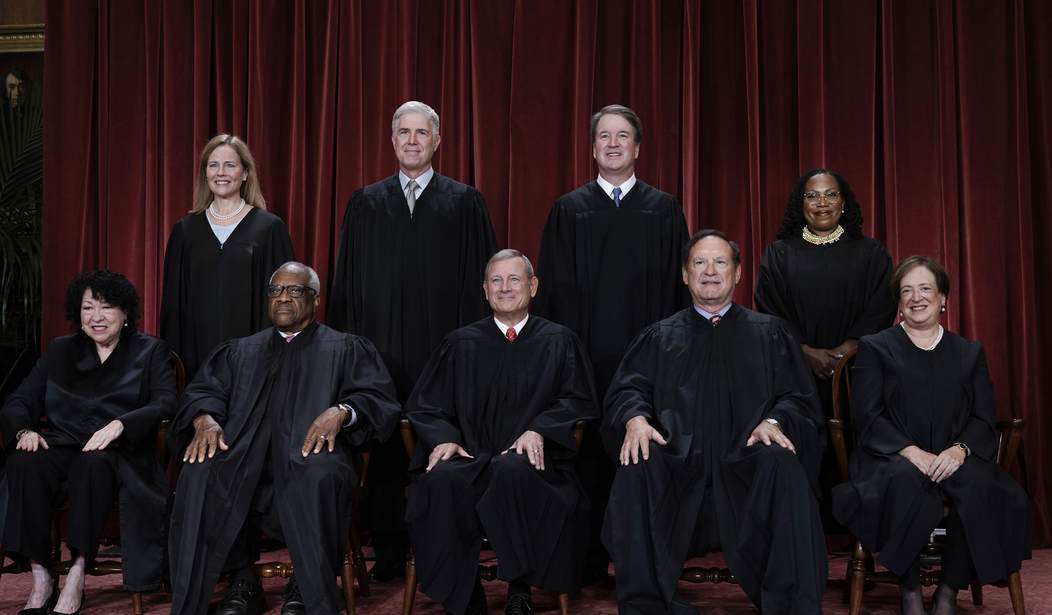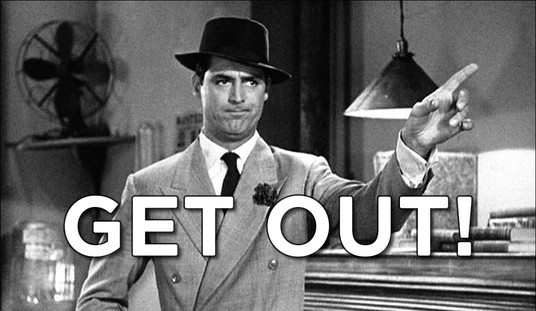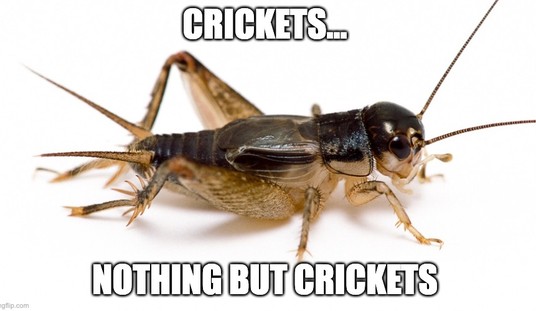As we reported earlier this morning, the Supreme Court struck down the affirmative action programs at Harvard and the University of North Carolina (the one at Chapel Hill) in an opinion by Chief Justice Roberts. The Supreme Court said that at least when the Constitution or an institution receiving federal funds are involved, affirmative action is not quite dead, but it is on life support.
It all starts with the Equal Protection Clause of the Fourteenth Amendment, which reads in relevant part: ‘No State shall … deny to any person within its jurisdiction the equal protection of the laws.’
That clause has long been interpreted as writing prohibiting government discrimination at least by race. There have also been successful arguments that it prohibited other kinds of discrimination, but today we are only talking about race. When race is considered at all, it can only do so if it is narrowly tailored to achieve a compelling interest. Lawyers know that when that test is applied, the discriminatory action is almost always doomed.
But for decades, affirmative action was allowed under that test. And the Supreme Court didn’t quite eliminate all efforts that might be described as affirmative action by race, but it has severely limited when race can be considered as a factor in college admissions. Today’s opinion stressed two points that will doom the overwhelming majority of racial affirmative action programs: there has to be an end point, and the use of race cannot be used to harm anyone.
(You might ask, dear reader, why the Fourteenth Amendment is being applied to Harvard, which is a private school. You’ll see at the very end.)
First, the program has to have an end point. The affirmative action can’t just go on forever and ever. And because of that, the compelling purpose the school is pursuing has to be something concrete and measurable, the courts can figure out when it has served its purpose and must end. At one point the Court says:
At the outset, it is unclear how courts are supposed to measure any of these goals. How is a court to know whether leaders have been adequately ‘train[ed]’; whether the exchange of ideas is ‘robust’; or whether ‘new knowledge’ is being developed?
Recommended
The second, and more devastating part, however, is that the Court said that ‘our cases have stressed that an individual’s race may never be used against him in the admissions process’ and that ‘[a] benefit provided to some applicants but not to others necessarily advantages the former group at the expense of the latter.’ In other words, you can’t give any advantage to a person based solely on his or her race. And while the Supreme Court was specific in saying that it was only talking about college admissions and not the workplace, it is hard to see how they can’t apply the same standards to the workplace—at least when we are talking about governmental action.
But Jonathan Turley for his part does think that if an applicant talks about how racism has affected him or her, schools can consider that:
...We have the affirmative action decisions. It is the Chief.
— Jonathan Turley (@JonathanTurley) June 29, 2023
That was part of a thread discussing decision day.
— Jonathan Turley (@JonathanTurley) June 29, 2023
...As expected, Roberts has secured a decision maintaining his view that the way to end racial discrimination is the end discrimination on the basis of race.
— Jonathan Turley (@JonathanTurley) June 29, 2023
...However, the Court appears to be supplying the draft for college essays. It says that students can still raise (and colleges consider) their individual struggle with racism.
— Jonathan Turley (@JonathanTurley) June 29, 2023
He also said this in another thread:
...I expect that colleges and universities are already working on the circumvention of the decision. They can use essays to identify race, even encouraging students to share any struggles with discrimination...
— Jonathan Turley (@JonathanTurley) June 29, 2023
We think that is right. Let us imagine that a black student had a really racist chemistry teacher who said something like ‘Normally, I would give you an A in my class. But you are black and therefore I think you can’t possibly be actually that smart, so I am knocking you down to a B.’ Yes, it is rare for a racist to be that explicit (and not be caught on cell phone video), but let’s play pretend. Then if that student is applying to Harvard or Carolina, shouldn’t that student be able to tell them what that teacher did and ask them to treat that B in chemistry as an A? We think so.
The other unanswered question is what about other categories? For instance, the Supreme Court has long said it is easier to justify discrimination based on sex than it is to justify discrimination based on race. So would an affirmative action program for women be more likely to survive in the Supreme Court? Certainly if the school discriminated based on economic status, that would be upheld--because discrimination based on economic status is subjected to the lowest test under the Equal Protection Clause.
Naturally there were reactions:
The six Supreme Court Justices who voted to end affirmative action vs the three who did not.
— Jo🌻 (@JoJoFromJerz) June 29, 2023
Any questions? pic.twitter.com/pU2IfnMXJ3
Yes, you are kind of proving the Supreme Court’s point about stereotyping.
And former First Lady Michelle Obama weighed in:
I wanted to share some of my thoughts on today's Supreme Court decision on affirmative action: pic.twitter.com/Wa6TGafzHV
— Michelle Obama (@MichelleObama) June 29, 2023
Ironically, however, this first section she accidentally puts her finger on another problem with affirmative action that didn’t seem to get mentioned in the opinion:
Back in college, I was one of the few Black students on my campus, and I was proud of getting into such a respected school. I knew I'd worked hard for it. But still, I sometimes wondered if people thought I got there because of affirmative action. It was a shadow that students like me couldn’t shake, whether those doubts came from the outside or inside our own minds.
When affirmative action exists—especially the kind of crude race-weighting that went on at Harvard and Carolina—it devalues the achievements of anyone who is suspected of benefiting—whether they benefitted or not. Clarence Thomas complained that because people assumed he got into Yale Law School because of affirmative action, that he didn’t enjoy the benefits that such a degree normally gives a person.
This is the face of a man who climbed the ladder of affirmative action to his present perch of power only to help destroy the very ladder on which he ascended. This is not only the mark of deep ingratitude & disavowal of history, but a withering betrayal of justice & democracy. pic.twitter.com/qtoLiOlQuy
— Michael Eric Dyson (@MichaelEDyson) June 29, 2023
But did he? Do you know he received the benefit of affirmative action? Or would he have achieved just as much based on his merit? We have never seen convincing evidence that he ever benefitted from affirmative action.
And, of course. Mad Scientist Fat Albert is angry, too:
The Supreme Court ended affirmative action. The *how* of it is not very interesting: They killed it because they could.
— Elie Mystal (@ElieNYC) June 29, 2023
But why? Well, because affirmative action was the only policy where the whiteness card got revoked.
My latest in @thenation https://t.co/9xG92eMI0W
All of which doesn’t explain why Asians would get screwed by affirmative action, but you do you. This is why, in our anecdotal experience, Asians are often the angriest about affirmative action.
Even a certain former president decided to weigh in:
It is fair to say that if you applaud today’s ruling, Trump’s nominees were crucial in securing it. The decision was 6-3—with the only dissenters being democratic appointees. If Clinton had won in 2016, and we assume the same vacancies would have opened, we would surely have a 6-3 majority to uphold affirmative action. They might have even expanded it.
And while there was much gnashing of teeth on the left, Matthew Yglesias was closer to the bargaining stage:
Rather than dragging feet on compliance, people who care about equity in higher education should try to direct financial resources away from the richest scools to the institutions that actually educate students from modest backgrounds. https://t.co/ZKmyc76enc
— Matthew Yglesias (@mattyglesias) June 29, 2023
The right way to think about these admissions schemes, in my view, is that they are moves by the most privileged universities in America to shore up their own interests and social legitimacy — not real social justice measures. https://t.co/ESbQUW6uRo
— Matthew Yglesias (@mattyglesias) June 29, 2023
I also just think practical political people need to avoid the temptation to see this as a Dobbs-like case of overreach — unlike on abortion, here public opinion is overwhelmingly on the side of the Supreme Court in a way that relatively few progressives seem to realize.
— Matthew Yglesias (@mattyglesias) June 29, 2023
That dovetails nicely into this person’s perspective:
Something to keep in mind: 60% of DEMOCRATS oppose race as a factor in college admissions (https://t.co/POOknTFLys). Whatever you hear today from the liberal media, keep in mind that in striking down affirmative action, SCOTUS reflected the view of three quarters of Americans. pic.twitter.com/ifAnokWATe
— Batya Ungar-Sargon (@bungarsargon) June 29, 2023
Affirmative action is not popular with most Americans, contrary to what you might think from the MSM.
Finally, this writer who describes himself as a "Supreme Ct lawyer, law professor, extremist centrist, former US Acting Solicitor General" thinks he’s got an ‘a-ha!’ moment for the majority:
Odd way for the affirmative action opinion today to begin, since Harvard as a private institution can't violate the Equal Protection Clause. Only state actors can violate the Constitution. It's true that private institutions that take federal funds are bound by Title VI, but that… pic.twitter.com/NpLxyhjXVl
— Neal Katyal (@neal_katyal) June 29, 2023
The final sentence reads: 'It's true that private institutions that take federal funds are bound by Title VI, but that isn't a 'equal protection clause' violation.' Except he didn’t bother to read the second footnote, which said:
‘We have explained that discrimination that violates the Equal Protection Clause of the Fourteenth Amendment committed by an institution that accepts federal funds also constitutes a violation of Title VI.’ Gratz v. Bollinger, 539 U. S. 244, 276, n. 23 (2003). Although JUSTICE GORSUCH questions that proposition, no party asks us to reconsider it. We accordingly evaluate Harvard’s admissions program under the standards of the Equal Protection Clause itself.
In other words, while Harvard is not directly covered by the Fourteenth Amendment, it is covered by this federal statute (more or less, the Civil Rights Act of 1964), and that statute is interpreted in this context as meaning the same thing as the Equal Protection Clause of the Fourteenth Amendment.
Pro-tip: Before you attack an opinion, it is usually wise to read it. Even the footnotes.
***
Editor's Note: Do you enjoy Twitchy's conservative reporting taking on the radical left and woke media? Support our work so that we can continue to bring you the truth. Join Twitchy VIP and use the promo code SAVEAMERICA to get 40% off your VIP membership!

























Join the conversation as a VIP Member